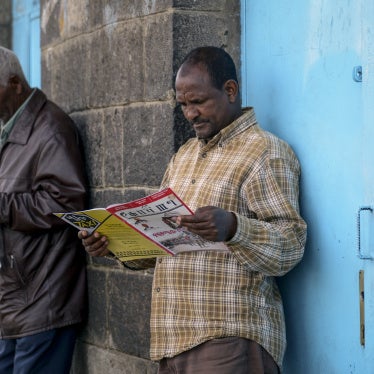Now the violence has reached the capital, which has become frighteningly dangerous. Roughly 350,000 people, about half the city’s population, have been displaced by sectarian fighting between the largely Muslim Seleka coalition, which took power in a March 2013 coup, and the anti-balaka (“anti-machete”) militias of the country’s majority Christians, backed by soldiers of the former government. Attacks have become more gruesome, with civilians often targeted.
People across the country are living in dire conditions in makeshift camps without basic shelter, food, water and medical supplies. Hundreds of thousands are hiding in the bush, an unknown number dying of preventable diseases, hunger and exposure. Aid agencies are unable to reach many of these desperate people.
African Union and French peacekeeping forces are the lid on the boiling kettle, but aren’t ideally suited to contain this human rights and humanitarian disaster. In the absence of a political process to re-establish a stable government, the United Nations should step in.
The African Union troops, a presence in the Central African Republic since late 2007, have increased their number since the new violence began to about 4,000 and are scheduled to grow to 6,000. They have secured some population centers, but lack the equipment and personnel necessary to prevent the country from imploding. Moreover, their neutrality has been compromised by the presence of Chadian soldiers; the Seleka forces include large numbers of Chadians.
The arrival in Bangui of additional French troops in early December was a welcome development, but their role also underscores the difficulty of restoring stability. In trying to disarm the Seleka, the 1,600 French peacekeepers run the risk of giving a military advantage to the anti-balaka forces, which aren’t easily disarmed because they use guerrilla tactics and blend in with the population.
The best option for addressing the challenge of the Central African Republic is to take up UN Secretary-General Ban Ki-moon’s proposal to transform the AU force into a full-fledged UN mission of 6,000 to 9,000 peacekeepers. Such a force would be better able to protect civilians and create an environment in which humanitarian assistance could be delivered.
With secure financing from the UN, and working under the peacekeeping standards set out in the UN Charter, the force would be more professional than AU troops, who rely on voluntary donations by donor countries.
A UN force would have better arms and equipment as well as logistical and communications capacities -- and would be less likely to be involved in incidents such as the exchange of fire in December in Bangui between Chadian and Burundian AU peacekeepers. Safeguards to remove soldiers with abusive records would be put in place.
UN peacekeepers would have the long-term commitment French troops lack, giving them an advantage in neutralizing the anti-balaka forces, an effort that will require understanding the militias’ command structure.
A UN mission would also come with civilian expertise to help rebuild the country, which the AU doesn’t possess. The French recently brought stability to Mali, but they don’t have the mandate, funding or political capital to remain in the Central African Republic to address both the short-term emergency and the longer-term challenges. They need support to rescue what is becoming a failed state.
UN experts could monitor and report on human rights violations and help re-establish the judicial system, disarm and reintegrate combatants, and reconstitute the security forces. The Central African Republic’s civilian administration has been utterly destroyed. Without UN assistance to attain some degree of state authority, the idea of holding national elections in early 2015, as the UN proposes, is implausible.
UN peacekeeping missions are hardly perfect solutions. They have a mixed track record, cost more than AU forces and sometimes last longer than they are needed. But they’ve scored recent successes. In the Democratic Republic of the Congo, they helped rid the eastern part of the country of a highly abusive, Rwandan-backed rebellion. In the Ivory Coast, they helped end the repressive rule of Laurent Gbagbo and install a democratically elected president. In the Central African Republic, they offer the best chance of a return from the edge of the abyss.









